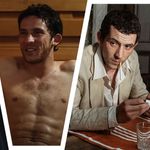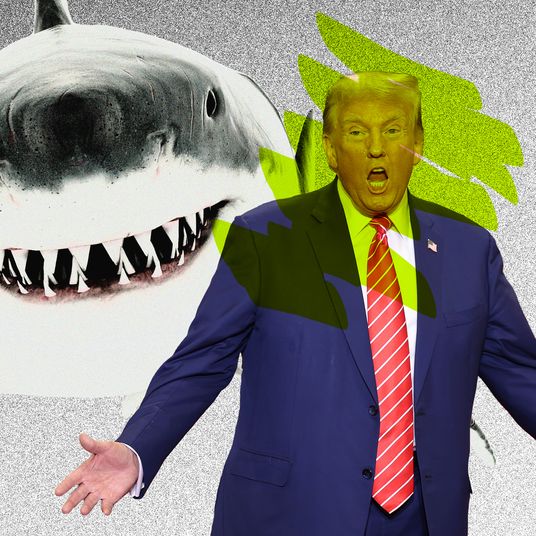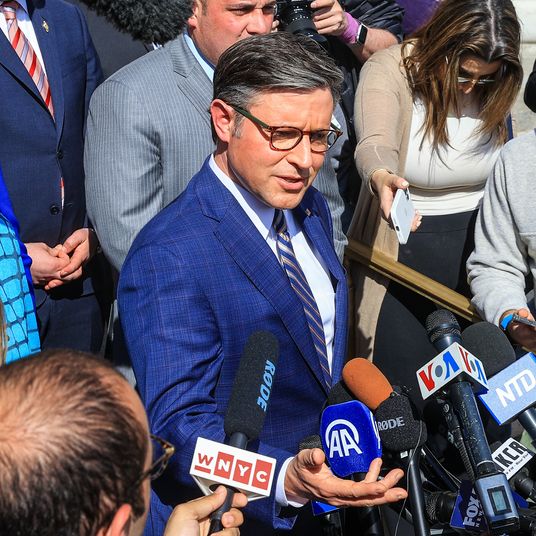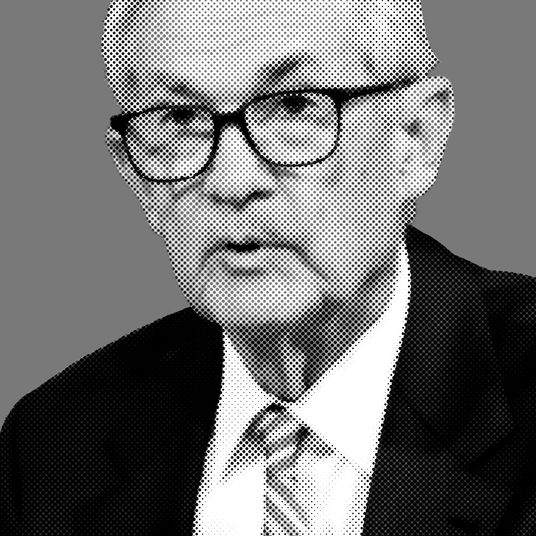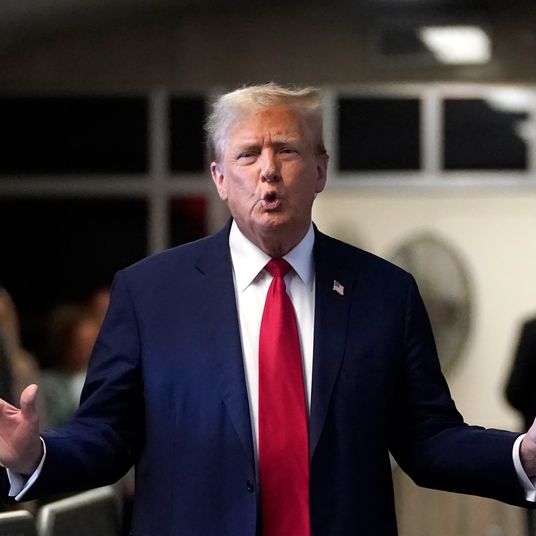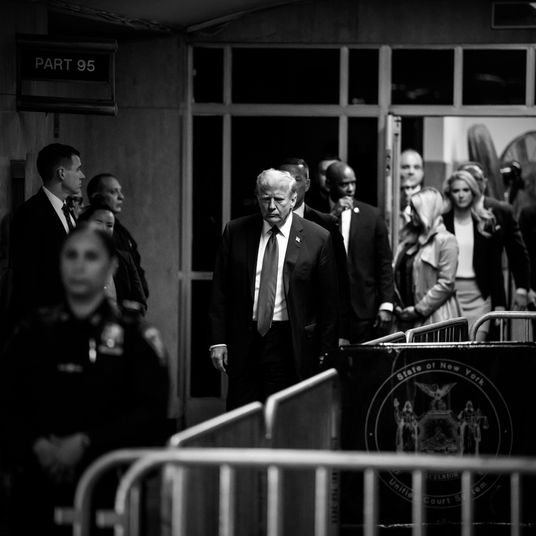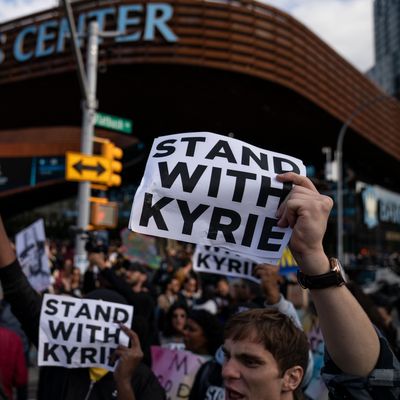
We’re now a week into the NBA season, and Kyrie Irving still hasn’t suited up for the Brooklyn Nets. His position on getting vaccinated for COVID-19 continues to be, in so many words, that he doesn’t want to and you can’t make him. He’s not allowed to practice or play home games in New York City, where you have to be vaccinated to enter indoor stadiums, so he’s losing about $380,000 for every game he misses at Barclays Center, while jeopardizing a contract extension that could be worth as much as $187 million.
On a smaller scale, Irving’s stubbornness has humbled me personally. The pundit in me craves ideological coherence. I can’t help but admire how effortlessly the words “it’s just about the freedom of what I want to do” have starved my brain.
One of the consequences of being famous and making “I’d prefer not to” the guiding principle of your concept of civic duty is that you attract other people like you. On Sunday, at the Nets’ first home game of the season, a crowd of hundreds gathered outside Barclays to “support” Irving, though their protest was more about using his name to turn their self-inclination into spectacle. They clogged the arena’s entryways, waving little signs that said “Stand With Kyrie,” while a few tried to storm Barclays and had to be held back by security. The Nets lost by 16 to the Charlotte Hornets, a much less talented team.
All told, Sunday’s ordeal was a neat distillation of the sorry position the Nets organization has often found itself in, to the chagrin of all but its most ruthlessly money-minded stakeholders — a magnet for derision and negative attention without the on-court success to make it worthwhile.
This isn’t unusual for a basketball team — most sports franchises inspire almost as much disgust in their followers as devotion — but the Nets have distinguished themselves by becoming the prohibitive favorites to become NBA champions.
I moved to New York in 2012, the year the franchise officially ditched the pungent meadowlands of North Jersey for the not-quite-bright-but-getting-there lights of Flatbush Avenue, where anti-development protests had recently given way to a grudging resignation. Jay-Z owned a small stake in the team at the time and had basically become its public face after helping broker the relocation to his home borough. He was doing a series of concerts at Barclays for opening week to mark the occasion. “It makes me complicit in a world of evil,” Daphne Carr, one of the activists in 2012, said “with a shrug” to the New York Times after admitting that she planned to forgo the self-imposed boycott that bound her fellow demonstrators to never attend an event at the new arena and catch one of the rapper’s shows. “I know that.”
Barclays looks like a rusted-metal version of what might happen if a bagel-maker couldn’t figure out how to make the ends connect, an unsettling mishmash of slopes and curves that came to symbolize Brooklyn’s transition to a major commercial center. But for all the local angst their move to New York caused — not the least among Knicks fans, who openly scorned the encroachment on their home turf — the Nets piggybacked on the goodwill generated by their most famous booster by embracing one of his credos: Don’t be cheap. The organization spent ungodly sums of money moving across state lines and hunting marquee free agents and big name trades.
But guys like Deron Williams, Joe Johnson, Paul Pierce, and Kevin Garnett were well past their primes when they put on Brooklyn jerseys, and the Nets regularly flamed out early in the playoffs. The organization lost $144 million in the 2013–14 season, and teetered on the edge of irrelevance. However, fortune tends to smile on big markets in the NBA, and before long the Nets became a surprise almost-contender on the strength of a well-constructed, fairly inexpensive roster of young talent.
This is all to say that a team that sucked as a rule when it played in New Jersey, then muscled onto physical territory formerly occupied by hundreds of residents and local businesses on the strength of its deep pockets and deeper hubris, was already annoying when it finished assembling one of the most annoying superstar throuples in league history last year: Kevin Durant, a basketball savant who compulsively argues with his Twitter haters from behind an anonymous burner account; James Harden, a miraculously skilled clock-stopper whose offensive output leans so heavily on drawing fouls and getting to the free-throw line that there has been a healthy yearslong argument among basketball fans about whether he’s single-handedly ruining the sport; and, of course, Irving, who was flirting openly with conspiracy theories like flat-Earthism long before he became the public face of vaccine resistance in professional sports.
The vibes these guys give off make you want to plunge your head into a vat of boiling water, but as players, they may be the most talented core of a professional basketball team that has ever taken the court together. And if last year’s disappointingly early playoff exit is any indication, the Nets probably need all three of them in order to accomplish what the organization brought them together to accomplish.
Instead, Irving is well on his way to making sure the Nets remain the same Nets we all know and mock, a paragon of unfulfilled potential. This was supposed to be Brooklyn’s year, and it still may be. But the team is getting perilously close to becoming the league’s least able to shake off the rust of the pandemic — not because they had a team outbreak, or because one of them had to mourn a loved one who died from COVID, but because one of their marquee players is making them a cause celébrè on Fox News. The beauty of sports is that, for all the stats and spreadsheets and shareholder meetings, you’re still dealing with people, and people are just as apt to carry you to glory as wrap you in their arms and jump off the deep end.





